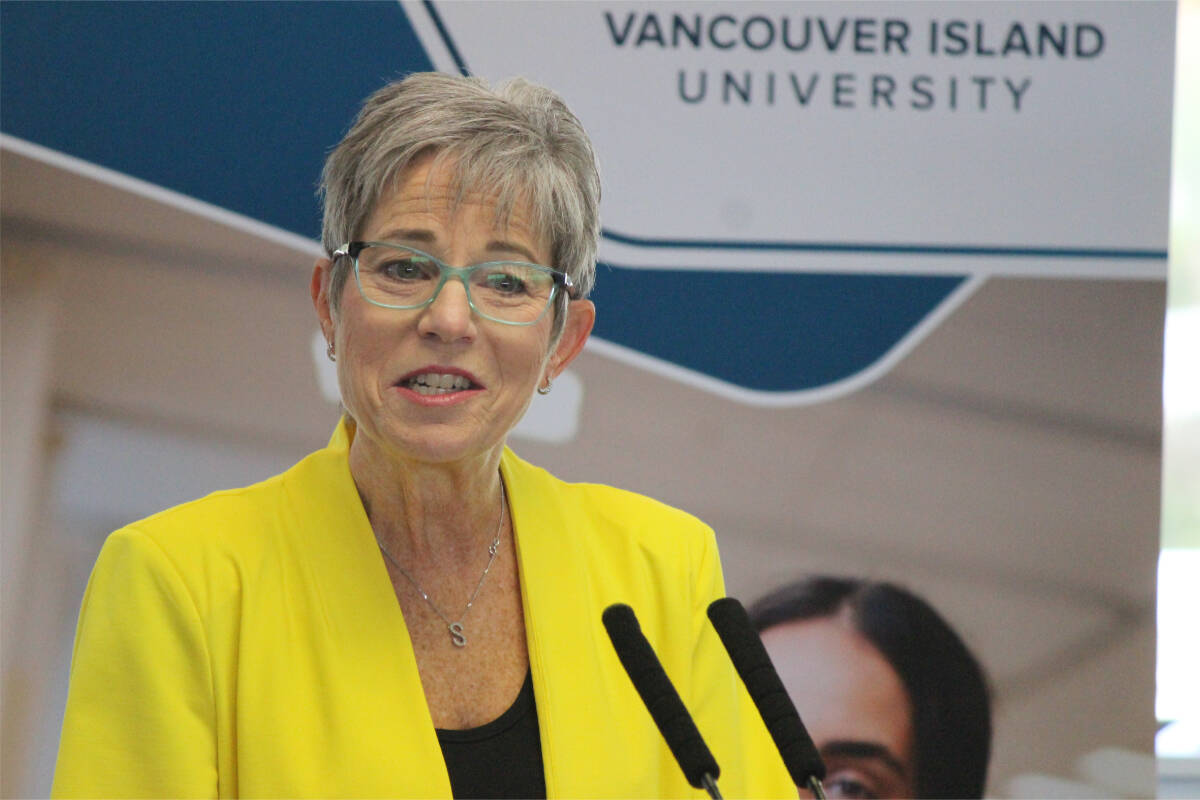The provincial government is getting into the micro-credentialing business.
Eligible British Columbians 19 years and older will be able to apply for a grant of up $3,500 starting in September, to be used to take one of more than 400 short-term programs offered through the province’s post-secondary institutions.
The grant program has a total budget of $39 million over three years and the provincial government expects that the programs will train 8,500 people.
Premier David Eby, joined by Post-Secondary Minister Selina Robinson and Jobs Minister Brenda Bailey, announced the program Tuesday (May 2).
The program is part of the government’s StrongerBC: Future Ready Action Plan, which Robinson described as a “generational investment” into post-secondary education “never seen before.”
It totals in excess of $1.4 billion including $480 million under the Future Ready plan announced during the last provincial budget to improve the affordability and accessibility of post-secondary education as well as $575 million for student housing, also announced in the provincial budget.
B.C. is expected to have one million job openings within a decade and ministry staff said 80 per cent of the job openings will require some form of post-secondary education and training.
Tuesday’s plan is the latest variation of comparable plans by previous government to help more people without the necessary training enter the labour market or help current workers upgrade their skills or transition into new careers because of economic and technological changes as in the case of forestry.
“Like never before, we have seen economic growth in this province and a shortage of the key people with the skills to be able to take the jobs that are created by that economic growth,” Eby said, when asked why this plan would be different from previous ones.
“The demand for employees with skills has never been higher and this is a very focused program informed by our engagement with…businesses, but certainly in partnership with First Nations and other groups that are under-represented in these jobs to make sure that we are responsive to the needs that are out there.”
Robinson called the plan comprehensive, cutting across ministries. Government also consulted widely, having talked to 850 individuals representing a range of organizations, she said. “There are 21 components part of this plan,” she said. “It’s a three-year-plan, but it has the ability to adapt.”
Both Eby and Robinson touted the micro-credential program. Eby said it opens up an array of opportunities. It benefits businesses who quickly need skilled staff and it benefits individuals who want to upgrade their skills while pursuing opportunities, Eby said. He added that government will work with post-secondary institutions to monitor the effectiveness of the grant program.
“We are seeing the economy change at a pace, which we have never seen before,” Robinson said when asked about the program. The grant program is a “critical element” in the plan because it allows people to stay in the workforce while receiving training, she said.
Other elements beyond the micro-credential grant include doubling interest-free student loan maximums through $151 million in student financial aid, the first increase to weekly student loan maximums since 2006; the creation of 3,000 new training spaces in the technology sector; 1,300 new training opportunities for early childhood educators; and short-term training in trades, which the government promises will benefit 6,000 people over three years. Other programs support First Nations and aim to speed up the recognition of foreign credentials.
Bridgitte Anderson, president and Chief Executive Officer of the Greater Vancouver Board of Trade, which has long lobbied for improvements, welcomed Tuesday’s announcement.
“Developing, attracting, and retaining talent is one of biggest challenges facing employers,” she said, adding that the plan will support B.C. businesses through the future skills grant and workplace innovation fund.
RELATED: Plans to fix B.C.’s labour shortage are good – but not bold enough: economist
@wolfgangdepner
wolfgang.depner@blackpress.ca
Like us on Facebook and follow us on Twitter.

